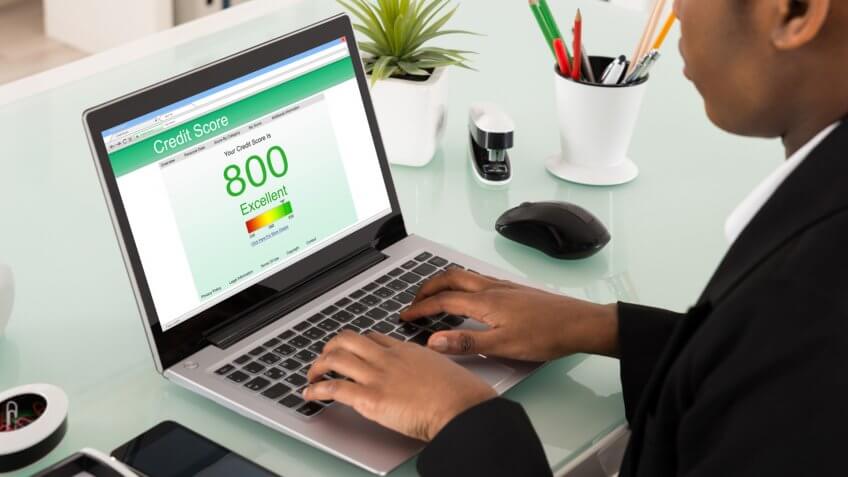
How To Understand Your Credit Report
December 7, 2021
Credit Cards Can Help Your Credit Score in 4 Ways
December 10, 2021In many respects, the parental refrain “Do what I say, not what I do” isn’t a wise one, but especially when discussing finances with your children.
You may be teaching your children bad money habits if you rack up credit card debt you can’t afford.
It can be confusing to follow such oxymoronic advice. The 2017 Parents, Kids & Money survey conducted by T. Rowe Price revealed that 48 percent of respondents have a credit card balance of $5,000 or more. These parents are more likely to have children who:
- Spend money as soon as they get it — 58% vs. 44%.
- Expect parents to buy them whatever they want — 65% vs. 57%.
- Say parents confuse them when talking about money — 67% vs. 51%.
- Say what parents say about money is different than what they hear in school — 65% vs. 53%.
Credit Before Car
Is there a way to get around all of that? Give your child a credit card, of course. You won’t be surprised.
Having ongoing, honest discussions with their children about how to use credit properly can help parents start their children on the path to good credit and financial literacy years before they have a driver’s license.
One of the most difficult hurdles to overcome is a reluctance to discuss financial matters with your kids. According to the T. Rowe Price survey, 69% of parents are hesitant to talk about money with their children. The survey found that parents who have more than $5,000 in credit card debt are more likely to be reluctant than those without, 35% to 21%.
Kids don’t always deal with money in a piggy bank. According to the survey, most people have a savings account (55%), 31% have an online or gaming account, 20% have a checking account, and 18% have a credit card.
How is the credit card bill paid? As parents, 57% said they pay the credit card bill, and 41% said their child does.
How to Start Giving a Kid a Credit Card
There are several ways to encourage your children to use credit cards. You can add them as authorized users on your credit card.
Their name will appear on a credit card that they can use, but for which you will still be responsible for paying as the primary cardholder. You are responsible for their debt, and any late payment penalties will affect your credit score.
Since children do not have full-time jobs, parents will likely be asked to cosign for their child’s credit card. In turn, the parents will be liable for the bill.
You could also get them a prepaid debit card that they fund and use like a credit card if that seems too big of a step for you both. You can only use the card for the amount you have put on it, so there is no debt involved.
Kids can spend their allowance on the BusyKid Visa prepaid spend card. An annual fee of $5 is attached to the card, which is issued in the name of the parent and the child’s name as well. Parental deposits can be made through credit card charges.
What to Teach Kids About Credit
Beyond setting a good example, there are many ways to teach kids about money. Before you give them a debit or credit card, show them what an inside of a bank looks like, go shopping with a budget in mind, talk about the cost of college, figure out how much to tip at a restaurant or how much sales tax will be charged, and explain why you can’t take a bigger vacation this summer.
Teenagers are probably the best time to learn about credit. Before that, they should gain some experience with money management by earning an allowance, spending their own money, and borrowing money from you a few times.
Here are some things you should teach your children about credit cards long before credit card companies send them applications in the mail:
- It’s not your money. While a credit card can buy you all kinds of things without cash in your hand, it isn’t yours. The user of a credit card can borrow money as long as it’s repaid. The longer it takes to repay that money, the more interest they’ll have to pay.
- The number of purchases is limited. All credit cards have a credit limit. There is a maximum amount that can be borrowed on the card, and if it is exceeded, the transaction will be denied. A low credit card balance will lead to a better credit history. A credit card balance should not be more than 30% of the credit limit, so a $1,000 credit limit shouldn’t have more than $300 charged to it.
- Pay your bills on time and in full. Missing a credit card payment will hurt your credit score and cost you interest and late charges. When a credit card balance remains unpaid for too long, creditors may sue to collect.
- Only spend what you can repay. One of the biggest challenges of parenting is teaching your kids to be responsible. A month after they’ve bought something with a credit card, you should get them to think about how they’re going to pay the credit card bill. In the near future, they’ll need to learn to think ahead and know you won’t be bailing them out with a loan.
- How a credit card will affect their future credit use. Teenagers are graded on how they use their credit cards the same way they are in school. They aren’t graded on what they buy, of course, but on whether they pay on time, how much credit they use, and other factors.
Learn about credit scores and go over them with your children. When people have high credit scores, they are more likely to qualify for better interest rates and loans in the future, like car loans or paying a lower security deposit when renting an apartment. Making credit mistakes now could make it more difficult to get a job, get a loan or rent an apartment later.
Is your personal information on the dark web? Make sure your identity isn’t at risk!


